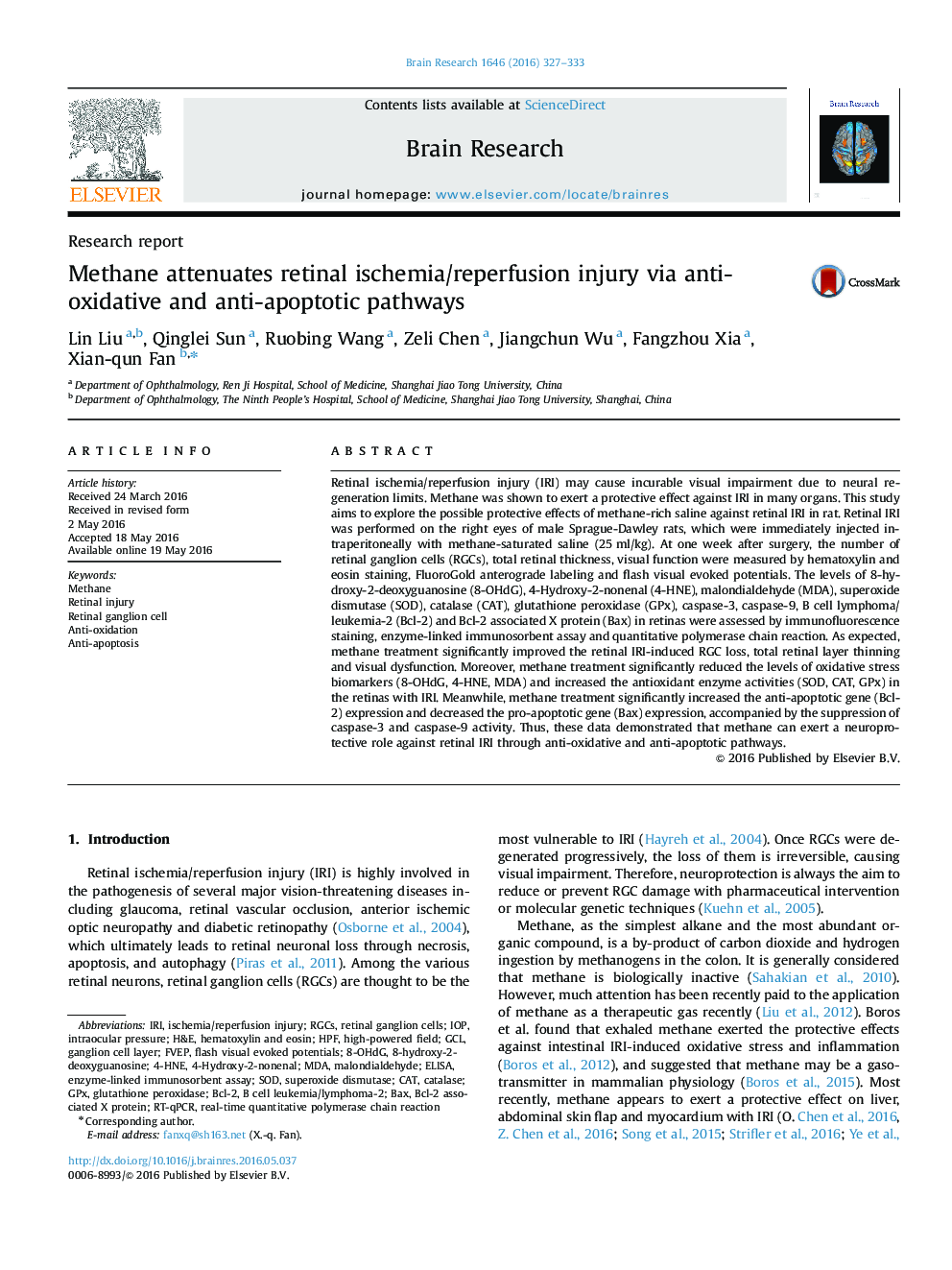| Article ID | Journal | Published Year | Pages | File Type |
|---|---|---|---|---|
| 6262422 | Brain Research | 2016 | 7 Pages |
â¢Methane ameliorated RGC loss and visual dysfunction induced by retinal IRI.â¢Methane suppressed oxidative stress and apoptotic process after retinal IRI.â¢Methane treatment offers a new therapeutic strategy for ischemic retinal diseases.
Retinal ischemia/reperfusion injury (IRI) may cause incurable visual impairment due to neural regeneration limits. Methane was shown to exert a protective effect against IRI in many organs. This study aims to explore the possible protective effects of methane-rich saline against retinal IRI in rat. Retinal IRI was performed on the right eyes of male Sprague-Dawley rats, which were immediately injected intraperitoneally with methane-saturated saline (25Â ml/kg). At one week after surgery, the number of retinal ganglion cells (RGCs), total retinal thickness, visual function were measured by hematoxylin and eosin staining, FluoroGold anterograde labeling and flash visual evoked potentials. The levels of 8-hydroxy-2-deoxyguanosine (8-OHdG), 4-Hydroxy-2-nonenal (4-HNE), malondialdehyde (MDA), superoxide dismutase (SOD), catalase (CAT), glutathione peroxidase (GPx), caspase-3, caspase-9, B cell lymphoma/leukemia-2 (Bcl-2) and Bcl-2 associated X protein (Bax) in retinas were assessed by immunofluorescence staining, enzyme-linked immunosorbent assay and quantitative polymerase chain reaction. As expected, methane treatment significantly improved the retinal IRI-induced RGC loss, total retinal layer thinning and visual dysfunction. Moreover, methane treatment significantly reduced the levels of oxidative stress biomarkers (8-OHdG, 4-HNE, MDA) and increased the antioxidant enzyme activities (SOD, CAT, GPx) in the retinas with IRI. Meanwhile, methane treatment significantly increased the anti-apoptotic gene (Bcl-2) expression and decreased the pro-apoptotic gene (Bax) expression, accompanied by the suppression of caspase-3 and caspase-9 activity. Thus, these data demonstrated that methane can exert a neuroprotective role against retinal IRI through anti-oxidative and anti-apoptotic pathways.
